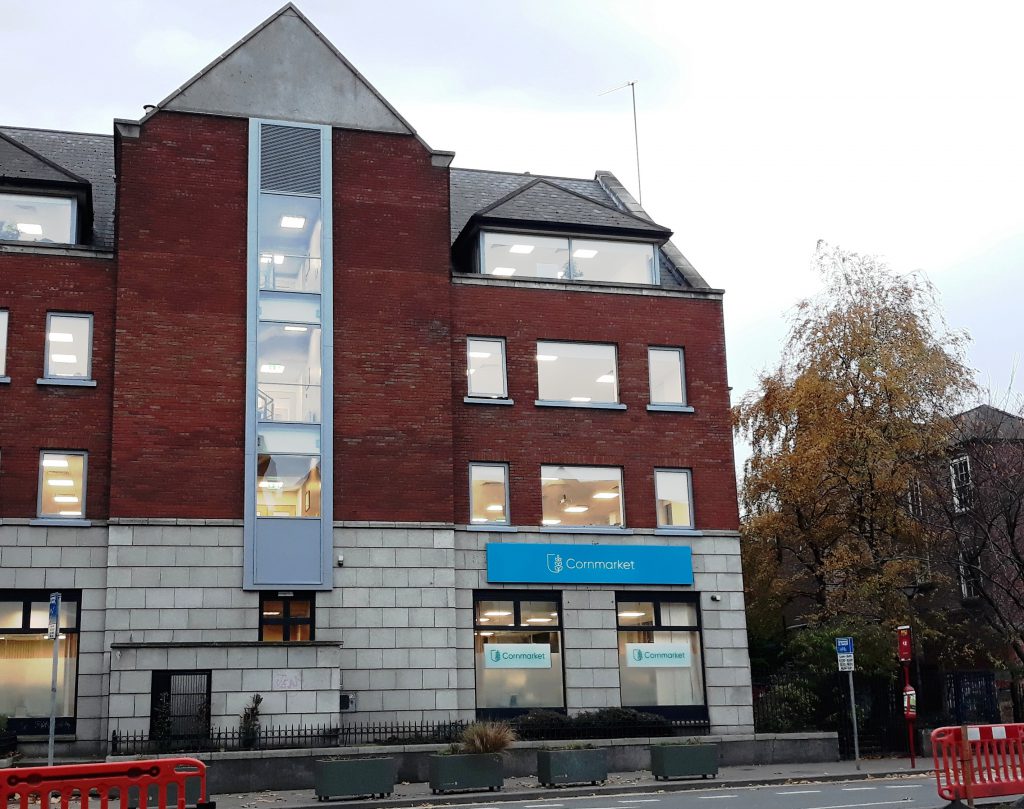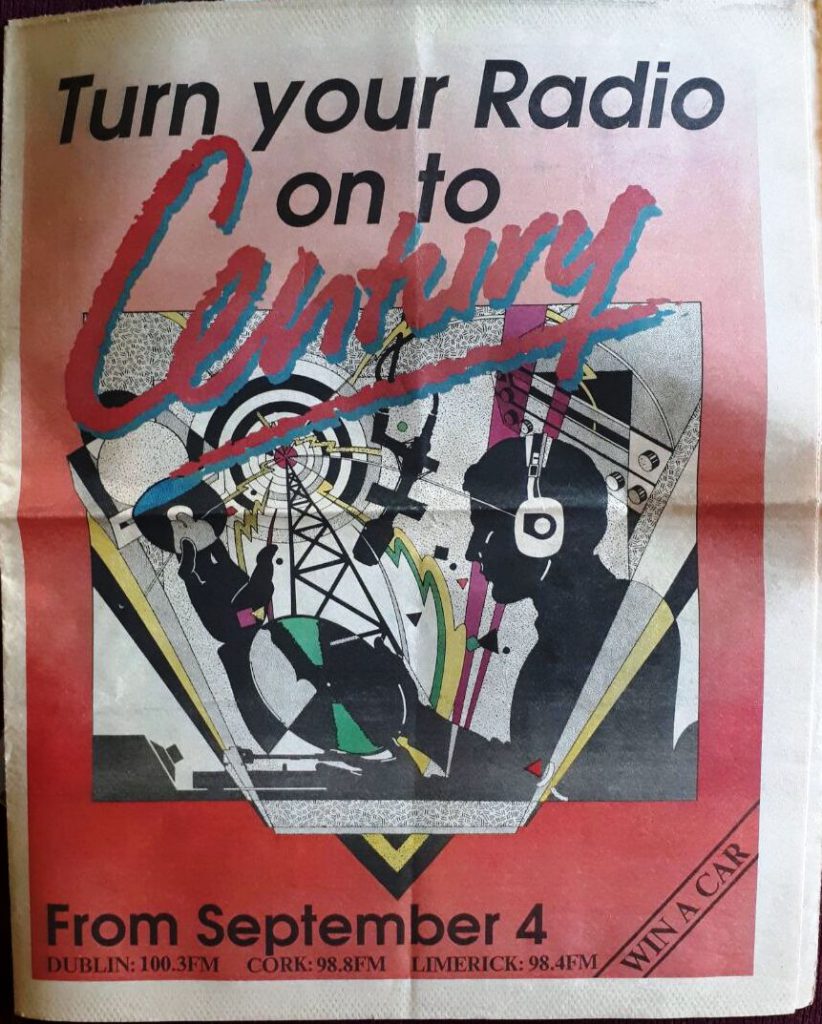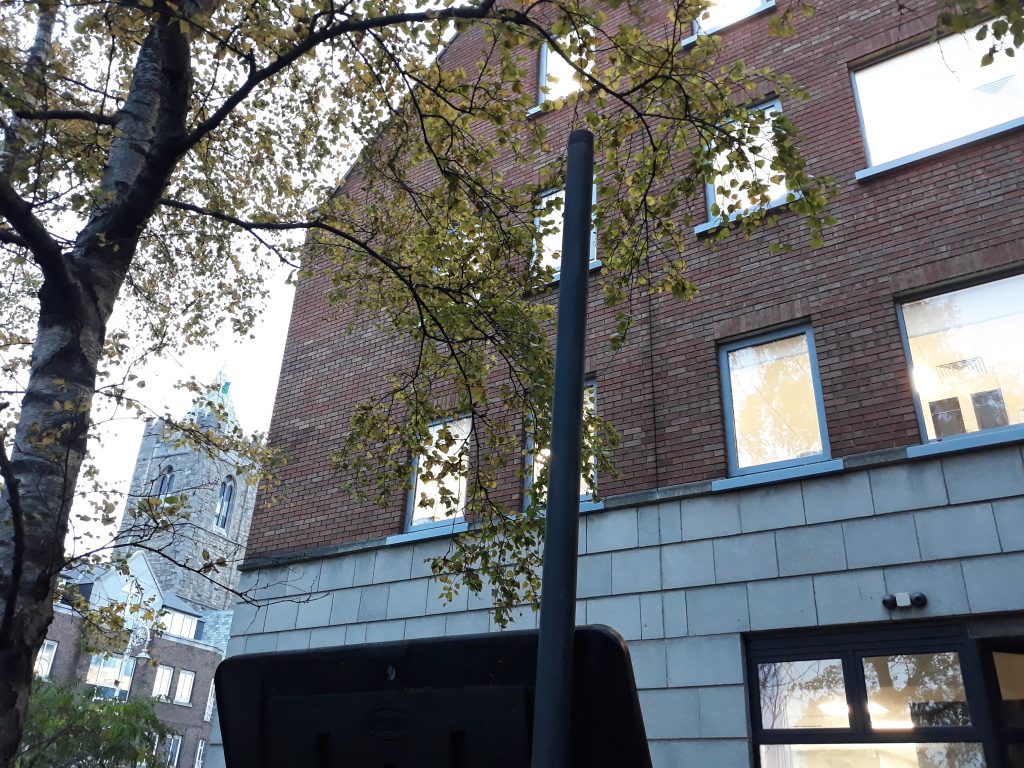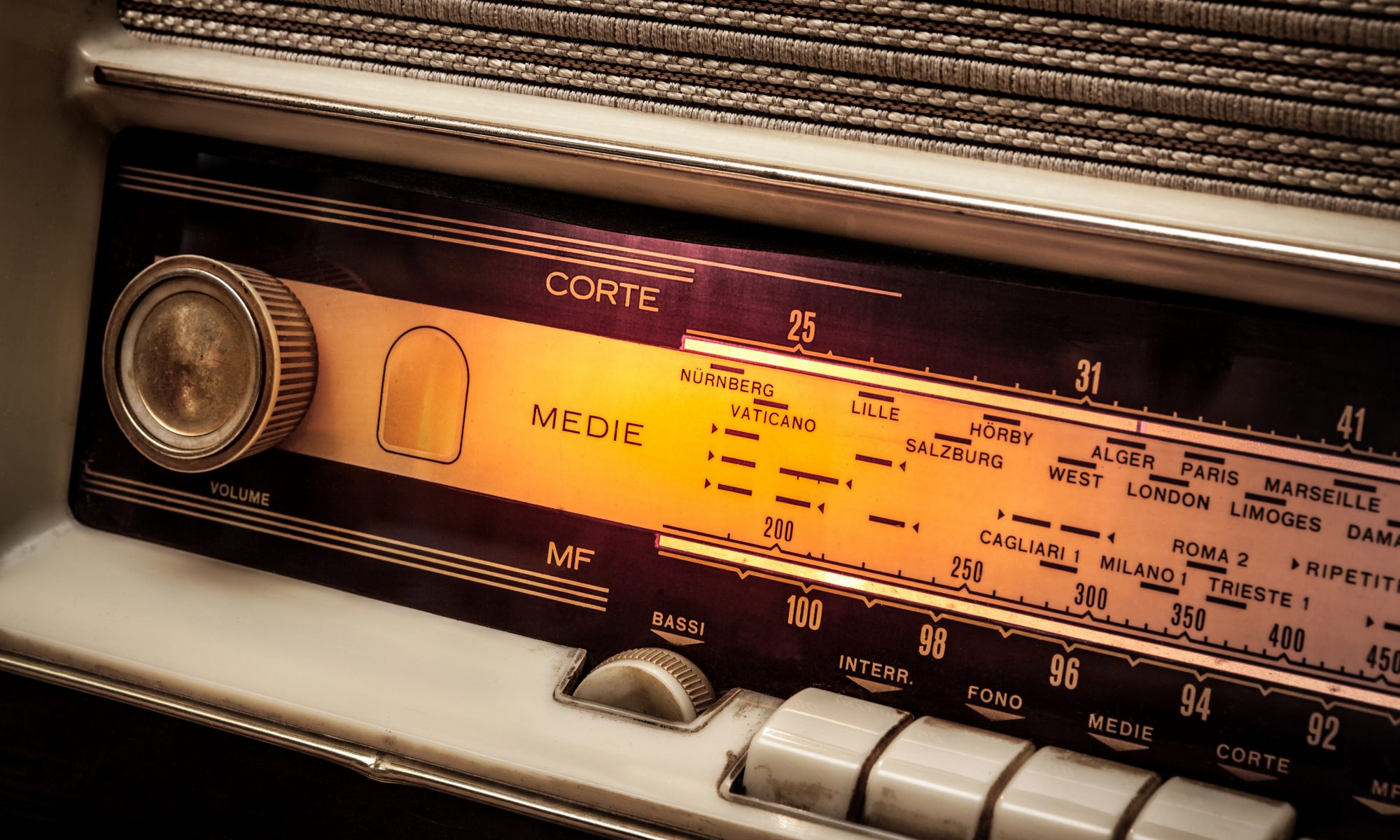Century Radio – 100.3 in Dublin and various FM, 1143 AM in Dublin and Cork
I heard the launch of Century Radio on September 4th 1989 on a tinny transistor in my grandmother’s house in Dublin. After all the hype about the new national radio station, it was something of an anti-climax: what was clearly a recorded message from Terry Wogan followed by a welcome from morning presenter Marty Whelan and then U2’s ‘Pride in the Name of Love’. It was hard to get a break in radio at the time because there were far fewer stations on air than during the pirate era so I didn’t for a moment entertain the idea that I would ever work at Century. I had college to occupy me and for my radio fix, I aimed at the more realistic target of Horizon Radio in Wicklow, where I began volunteering that autumn on programmes in Irish and English.
Century had its own news service in Irish, Nuacht na hAoise (literally ‘News of the Century’), presented by Rónán Mac Aodh Bhuí, a journalist from the Donegal Gaeltacht who was only a few years older than myself. Many years later I heard a rumour that Century’s launch was delayed after an Irish language organisation insisted that the new national station broadcast a news service in Irish. Whatever the truth, in fact Century went on to distinguish itself in that regard by broadcasting a three-minute Nuacht bulletin four times daily at 10.30, 12.30, 2.30 and 4.30. This was syndicated to several local stations outside Dublin and no comparable service has existed on independent radio since the demise of Century. Emboldened by my experience with Horizon Radio, in 1990 I sent a tape and CV to Century’s Head of News, David Davin-Power. I was called in for an audition in the station’s offices at Christchurch Square and put on a panel of hopefuls. This led to me replacing Rónán from time to time and eventually to weekend graveyard shifts reading news in English. I was doing more 5.00am starts than the average university student but eventually I settled into regular shifts on Saturday and Sunday nights.

The former Century Radio HQ at Christchurch Place. The newsroom was on the first floor above the Cornmarket sign. There’s still a link antenna on the roof at the right corner!
It was a baptism of fire in the newsroom in the company of stars such as Richard Crowley, Cathy Cregan and the legendary Bob Gallico (RIP) whom I had idolised on Radio Nova just a few years previously. Bob didn’t compile news himself but read it during the evening drivetime programme he co-presented with Declan Meehan. I wondered why he was handed the scripts at the door of the newsroom but heard subsequently that this was a relic of the infamous Nova strike in 1984 which led to a bitter dispute between the National Union of Journalists and station owner Chris Cary. On Sundays I presented news during Bob’s classical music programme which aired from 8.00-9.00pm in the first year of Century’s existence. Being thanked by Bob Gallico at the end of the bulletin was beyond my wildest dreams as a teenage fan of Radio Nova.
Shift work increased during the summer of 1990, allowing me to move out of home and get my very own grim bedsit in Rathmines, the beating heart of student-land. World Cup fever gripped the country that summer, and I kicked off many bulletins with Century’s sports reporter Robert Reade on a scratchy mobile phone line from Italy. Given my thin experience, more often than not I was grounded at base but on occasion I would be sent to press conferences around town, lugging a brick-sized mobile phone and a heavy Marantz recorder with me. Among my claims to fame were interviews with government ministers Mary O’Rourke and Michael Woods and reading the news on the night of Mary Robinson’s election as President in November 1990. I also took an anonymous phone call from someone claiming to represent the IRA following a bomb blast in the North. We had been trained for such an eventuality but it was still pretty nerve-wracking the first time. It was at Century too that I learned how to edit reel-to-reel tape and transfer audio to cart machines, a step up in the world of technology after years of hissy cassettes.

A commemorative magazine to mark the launch of Century Radio. Pic courtesy of Brian Greene.
I caused my own drama in the newsroom one morning when after a late night with friends I failed to turn up in time for my shift on Nuacht. The story goes that after a series of frantic calls by news editor Paddy Clancy, another freelancer Orlaith Carmody (wife of 2018 presidential hopeful Gavin Duffy) was roped in to read Nuacht as the search for me continued. Orlaith had good Irish but hadn’t presented Nuacht before and colleagues in Radio Kerry were prevailed upon to translate the headlines and fax them to Dublin. I was raised from my slumber just in time for the 12.30 bulletin and normal service resumed. A young cyclist in Rathmines had been badly injured when struck by a car that morning and my colleagues were afraid that I was the victim.
In 1990, Century stopped paying for the Press Association wire to save money, leaving us at risk of missing breaking news stories from the UK. In the pre-Twitter age, on more than one occasion we were late with big events and had to keep a close eye on Sky News to tip us off. Despite having many big names in the newsroom, we had nothing close to the resources of our main competitor so it was also essential to monitor RTÉ news bulletins every hour. Within the first year, experienced journalists including political correspondent Caroline Erskine were let go to save costs and the newsroom was pared back to the bare minimum. Staff journalists went on strike and eventually took pay cuts and things were so bad at the end that only half-shifts were being offered to freelancers like me. We were aware that the financial situation was grim throughout Century’s existence; a colleague would jokingly make a bouncing sound as we walked across to Mother Redcap’s pub on Fridays to cash our pay cheques. I don’t remember any cheque bouncing, but there was always that fear and older colleagues with mortgages and family responsibilities were in a far more vulnerable position than me.

The newsroom was on the first floor of the building. See Christchurch in the background.
Century’s woes are well known. Apart from the financial instability, the transmission network was poor because of the intransigence of RTÉ who wanted to impede its new competitor. As a result Century never achieved anything close to nationwide FM coverage and the proposed high-powered AM transmitter didn’t materialise. The Dublin AM transmitter on 1143 kHz was the old Sunshine Radio pirate rig in Portmarnock and despite a supposed power of 2 kW, its signal was poor in the city. On my way to a press conference one day, I had to endure a rant from a taxi driver complaining about the poor AM coverage as we drove through the city streets accompanied by the fading signal. The programming policy chopped and changed regularly but never seemed to hit the mark and the station was re-launched twice, first as Century 100 (even though it wasn’t on 100 FM everywhere) and later as Century FM. The news was rebranded as the ‘Voice of Ireland’ which sounded pompous and pretentious and a particularly bad station ID was a grating American voice announcing ‘Century 100 – Just Beautiful, Just for You’.
Despite our interest in digging out news stories, we had no idea about corrupt payments involving Century, an issue that would be uncovered by the Mahon Tribunal into planning years in the future. But there was an atmosphere of foreboding in the autumn of 1991 as one of the founders Oliver Barry sold his share in Century to Capital Radio in London. 27 years ago on November 19 1991, I was at home listening to the 5.45 main evening news when newsreader Dairena Ní Chinnéide announced suddenly that Century had gone into liquidation and was closing down with immediate effect. Capital had failed to find new financial backing and pulled out, putting an end to Ireland’s short-lived first independent national station. We knew things were bad, but not that bad – I was supposed to do a half-shift in the newsroom the following day.
Despite the uncertainty, it was a fantastic two years and a very steep learning curve. In an article about the 20th anniversary of TV3 (now Virgin Media One) in September 2018, staff recalled how they got unparalleled experience at a young age because of the need to multitask in a tightly-run, new media organisation. It was the same at Century and I learned a lot of the basics of journalism by shadowing colleagues and being thrown in at the deep end again and again. One invaluable skill was how to write accurately and concisely under pressure, summed up brilliantly by Paddy Clancy one day as I laboured over which adjective to choose while writing up a story for the lunchtime news: ‘Walsh, there’s no room for art at five to one!’ Despite its short existence, Century was high-profile enough that many of its staff eventually got employment elsewhere in the media. I graduated to RTÉ myself along with several others, some of whom continue to work there today such as Carole Coleman and Marty Whelan. When the inexperienced Green Party entered coalition talks with Fianna Fáil in 2007, the late Minister Séamus Brennan famously told them: ‘you’re playing senior hurling now lads’. That would be a fitting summary of my lucky break in Century Radio in the early 1990s.
There are some recordings of Century Radio here.
